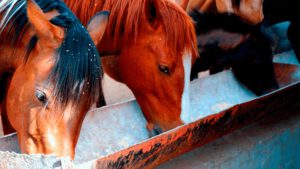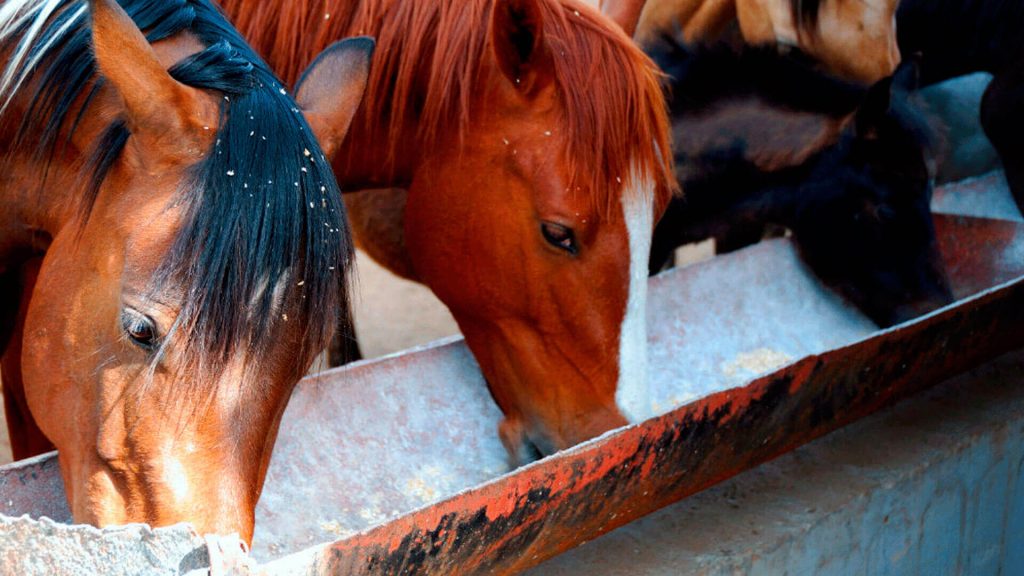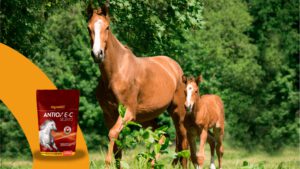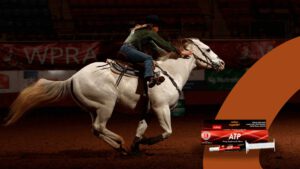
- +1 (469) 975-1465
- contact@organnact.com
- 11401 NW 134th St, Medley, FL 33178, EUA

Horses are classified as monogastric herbivores. When free-ranging, they spend 16 to 18 hours a day grazing, with brief intervals for social interaction and rest, in line with their adapted anatomy and physiology for this natural behavior. However, changes in management, diet type, space restriction, and sporting activities have altered this natural behavior, leading to a range of issues in horse husbandry, including increased incidence of gastrointestinal disorders.
The horse’s stomach is relatively small, with a capacity ranging from 7.5 to 15 liters. Which makes it smaller when compared to subsequent parts of the digestive tract, including a well-developed large intestine. The stomach contents are stratified in layers with continuous and variable secretion of hydrochloric acid, and gastric emptying occurs continuously at a rate that varies with the contents.
Equine Gastric Ulcer Syndrome (EGUS) refers to any stomach disease often caused by increased acid exposure (pH < 4).
Factors such as stress, dietary management, and genetic predisposition increase the risk of EGUS.
Clinical signs include poor body condition, behavioral abnormalities like nervousness or aggressiveness, reduced appetite, and occasional mild to moderate intermittent colic. Besides impacting overall health and well-being, gastric ulcers can also affect athletic performance.
Treating gastric ulcers is costly and often requires extended periods, underscoring the importance of both short and long-term prevention strategies. Management approaches include pharmacological interventions as well as environmental strategies like reducing exercise-related stress and dietary adjustments.
Various foods show potential benefits for equine gastric health:
The use of supplements containing ingredients beneficial for gastric health emerges as crucial in addressing EGUS. Supporting not only equine stomach health but also promoting overall health, well-being, and athletic performance.
That’s why Organnact has Gastro Equi Pellets, a dietary supplement specially developed to provide a better gastric health to your horses.
We are one of the largest veterinary laboratories in Brazil. With over 30 years of experience, robust infrastructure, and cutting-edge technology, we expertly cater to the market’s needs with a portfolio of over 260 products for dogs, cats, and horses, including supplements, snacks, and natural food.



Copyright © 2024 Organnact. All rights reserved.
One Response
7w3w2y